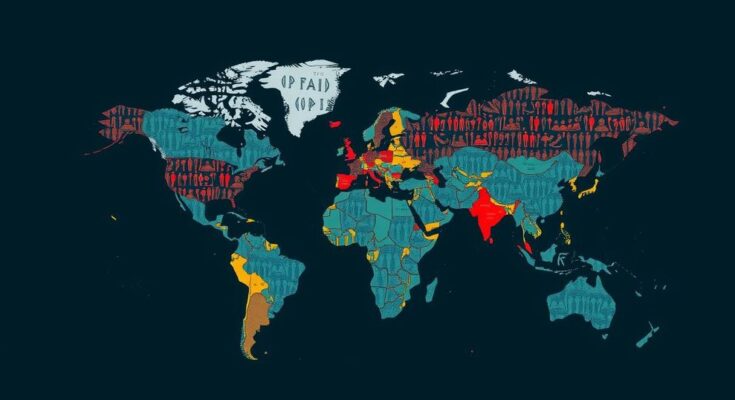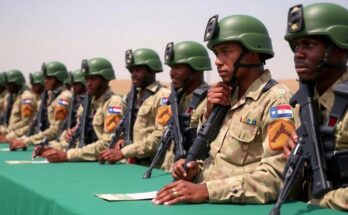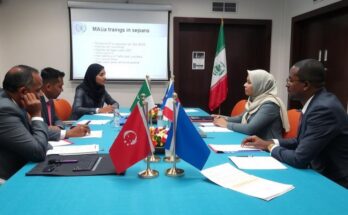Ongoing hostilities in Syria have intensified the humanitarian crisis, prompting the UN to suspend aid operations. In Iran, survivors of the 2022 protests demand justice for human rights abuses. The UN Mission in South Sudan urges preparations for the first democratic elections, emphasizing civic freedom and local governance.
The ongoing violence in Syria has exacerbated the humanitarian crisis, prompting the UN Office for the Coordination of Humanitarian Affairs (OCHA) to issue a severe warning. An airstrike at the Ad Dabousiyah border crossing with Türkiye resulted in civilian casualties, including a volunteer from the Syrian Arab Red Crescent, along with significant damage to humanitarian resources. In response to the increased risks, OCHA has suspended all humanitarian operations at border crossings until further notice, emphasizing the need for protection of aid workers under international law.
Moreover, the escalation in Idlib and western Aleppo is of grave concern, as recent artillery shelling led to the deaths of three children under 14 and injuries to numerous others, disrupting educational activities. This wave of violence has forced many non-governmental organizations to halt their operations in the affected regions. While aid deliveries persist through the Bab Al-Hawa border crossing, the situation remains perilous for those within the conflict zones.
In Iran, survivors of the brutal crackdown on the 2022 ‘Women, Life, Freedom’ protests are advocating for accountability regarding human rights violations. The Independent International Fact-Finding Mission (FFM) has engaged with over fifty Iranian exiles in Germany, gathering testimonies about torture, arbitrary detention, and other abuses faced during the protests ignited by Jina Mahsa Amini’s death in police custody. The FFM’s Chair, Sara Hossain, stresses the importance of addressing victim needs in the pursuit of justice, noting that the survivors’ voices are vital in this process.
Finally, the UN Mission in South Sudan (UNMISS) has called for preparations for the country’s first democratic elections in December 2026. During the annual Governors’ Forum in Juba, UNMISS head Nicholas Haysom urged governors to cultivate civic freedoms and trust among the citizens for effective participation in the electoral process. He also highlighted the necessity of initiating the training for security forces to ensure a stable environment ahead of the elections.
The current situation in Syria involves intense military confrontations which are contributing to an unprecedented humanitarian crisis. The UN and various humanitarian organizations are working under extreme conditions, often facing severe threats and disruptions. In Iran, the aftermath of the protests against oppressive laws has led to widespread human rights violations, prompting international efforts to seek accountability. Meanwhile, South Sudan is moving towards its first democratic elections since its independence in 2011, amidst a backdrop of political struggle and conflict, making the role of local governance crucial to ensuring a fair electoral process.
In summary, the humanitarian conditions in Syria continue to deteriorate due to ongoing violence, necessitating the suspension of aid activities. Survivors of Iran’s crackdown on protests are demanding justice for human rights abuses, while efforts to prepare for elections in South Sudan are underway, emphasizing the need for civic freedom. These developments highlight the critical issues of human rights, humanitarian efforts, and governance in conflict-ridden areas, needing urgent international attention and support.
Original Source: news.un.org




